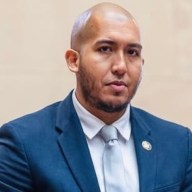By Daniel Massey
Pete Seeger, the folk singer who once got a letter from the Ku Klux Klan thanking him for inspiring 722 new membership applications in one week, is bringing his message of peace and tolerance to Forest Hills later this month.
The 83-year-old will headline a concert called “Sing Out—Songs of Courage, Struggle and the Human Spirit” Jan. 27 at the Forest Hills Jewish Center.
Organized by Forest Hills’ own folk singers and songwriters Paul and Elaine Suchow, the musical event was put together to uplift the community during troubled times.
“In light of the Sept. 11 tragedy, we wanted to be able to do something,” said Paul Suchow, who met Seeger at an Earth Day concert in upstate New York eight years ago. “We want to give people hope and the feeling that they are coming together.”
The program will feature Seeger with Paul Suchow and the voices of children from the Central Queens YM&YWHA, Forest Hills Jewish Center and Solomon Schecter Schools. Winners of a month-long student art contest on themes related to Sept. 11 will also be announced at the event.
Students’ voices will mix with those of the two veteran folk singers in a final number written by the Suchows especially for the Forest Hills concert.
The song, called “There’ll Come a Day,” begins, “There’ll come a time/ when all faiths come together/condemning hate and evil in the world. There’ll come a time/of no more suffering and sorrow/working toward a bright tomorrow.”
Proceeds from the concert will benefit the UJA-Federation of New York campaign to aid people affected by terrorism in New York and in Israel.
“Music, in troubled times, brings people together,” said Seeger about singing in the concert.
The musician, famous for writing songs such as “Where Have All the Flowers Gone?” and popularizing Cuban Revolutionary José Martí’s “Guantanamera,” is no stranger to performing during tenuous moments in history.
Since the 1930s he has sung out against McCarthyism, the Vietnam war and apartheid in South Africa. He was a voice of the civil rights struggle, popularizing the movement’s anthem “We Shall Overcome.”
In September, 1949, Seeger fought an attempt by the Ku Klux Klan to upstage a concert by the singer, actor and civil rights champion Paul Robeson in Peekskill, New York. After the Klan violently shut down a late-August concert, Seeger and other musicians rescheduled it for the following week.
The day before the concert, Seeger received a letter from the Klan thanking him for stimulating 722 new membership applications. Again, the Klan intervened during the rescheduled concert, throwing stones and shouting racial slurs in one of the most violent racial confrontations of the 1940s.
The folk singer’s politics also got him into trouble during the McCarthy era, when he was blacklisted and called before the House Un-American Activities Committee.
Seeger had learned to play banjo in his teens and throughout his career has played with such legends as Leadbelly, Woody Guthrie and Bob Dylan. In 1948, he formed the folk group The Weavers, famous for its rendition of Leadbelly’s “Goodnight Irene.” But as quickly as it rose to prominence, the group was torn apart by blacklisting.
Seeger testified before HUAC in 1955, but when he was asked if he entertained at Communist Party functions, he refused to answer the question.
“I have sung for Americans of every political persuasion and I am proud that I never refuse to sing to an audience, no matter what religion or color of their skin, or situation in life,” he told the committee. “That is the only answer I can give along that line.”
Seeger was cited for contempt and sentenced to a prison term which was later thrown out on a technicality.
In 1994, Seeger was given a National Medal of Honor and Kennedy Center award by the same U.S. government that had decades earlier blacklisted him. “You know the Cold War is over when Pete Seeger can get a medal from the White House,” exclaimed a 1994 editorial in the Nation.
To Seeger, music has always been a vehicle to bring people together and help them realize that freedom is a possibility. “I am proud that my songs seem to cut across and find, perhaps, a unifying thing – basic humanity,” he told HUAC in 1955. Now, Seeger’s unifying act is coming to Forest Hills.
Tickets are still available and are priced at $15 for family circle seats and $50 for donor circle seats. For more information call 718-268-5011.
Reach reporter Daniel Massey by e-mail at Timesledger@aol.com or call 229-0300, Ext. 156.
































